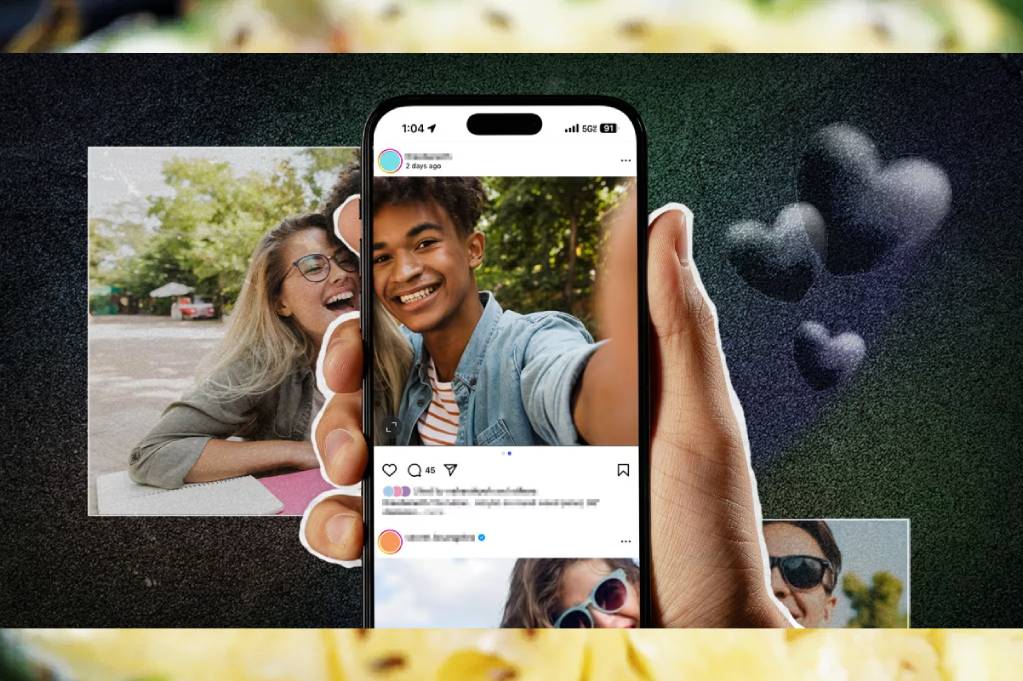"We're content living together privately, away from prying eyes," said the young woman who lives with her fiance in Texas.
Val exemplifies those embracing a "completely private love life." Their romantic lives, whether blissful or tumultuous, remain off social media, secret from friends and even family.
For Gen Z, a generation raised on social media, this is a novel choice. They date without selfies, marry without announcements, and argue without cryptic online posts.
On TikTok, videos about "quiet love" attract tens of thousands of views. Pinterest saw searches for "courthouse weddings" jump over 190% from 2023 to 2024.
 |
More and more young people are keeping their love lives private. Photo: CNN |
More and more young people are keeping their love lives private. Photo: CNN
Dating expert Rae Weiss, who studies psychology at Columbia University, explains that Gen Z's trend toward privacy stems from growing anxieties about how social media distorts relationships.
A typical couple often showcases luxurious vacations, perfect dates, stylish matching outfits, and grand gestures of love. But they also understand it's a curated and staged production.
"Social media displays only the best moments, the perfect angles, through flattering filters. Young people recognize this creates unrealistic standards and makes them insecure when their own relationships aren't as glamorous," Weiss emphasized.
In reality, every relationship has messy, complicated, or dull moments—things the algorithm doesn't favor unless there's drama.
A 2023 study showed that the more love displayed online, the lower the relationship satisfaction and the higher the likelihood of developing anxious attachment styles. Therefore, Gen Z's shift towards quiet love is a way to release the pressure of perfection and return to genuine, real-life expressions of affection.
"Not competing with other people's posts helps avoid envy or unrealistic expectations when comparing your love life to others," said Dr. Pamela Rutledge, professor emerita at Fielding Graduate University.
Val once felt pressured to display her love online, but one day she realized, "It was like I was trying to prove we loved each other, when the proof was all around us."
Jason, 21, has been in a relationship for almost a year but hasn't posted any photos online. He admits the main reason is to avoid judgment and scrutiny. "I even hesitate to tell my friends about my relationship," the University of British Columbia student revealed.
Jason's reluctance to share isn't about fearing public criticism, but rather the dread of group messages, private inbox inquiries, or "Instagram investigations" launched by acquaintances.
The feeling of "always being watched," even without a physical presence, is what Professor Brooke Duffy of Cornell University calls "imagined surveillance"—a form of social anxiety in the social media age. The result is that private stories can be dissected, distorted, and even become gossip in group chats.
Jillian St. Onge, 26, from New York, is engaged but has kept it secret from her family. "When people know too early, you feel like you owe them an explanation if things don't work out," she said.
But some realize complete secrecy isn't ideal either. They find ways to share subtly, for instance, through "soft launching"—posting photos of two plates on a table, two shadows on a white wall, two pairs of shoes side by side.
For St. Onge, a soft launch after 5 months of dating is the right balance of privacy. Jason also distinguishes between posting on his profile (photos remain permanently) and stories (automatically disappear after 24 hours).
From an outsider's perspective, "keeping private" and "hiding" may seem similar, but the motivations are different, according to marriage and family therapist Lia Huynh in California. Keeping private is about protection and caution, not concealment. Those who choose privacy aren't ashamed of their partners; they simply want to safeguard their relationship from unnecessary scrutiny.
According to Huynh, those who choose privacy should ask themselves, "Am I doing this out of love and appreciation, or to maintain an escape route?" and explain this to their partner.
Weiss also advises couples to determine whether their expectations about public disclosure align. If one person values their friends' opinions more than the other, conflict can easily arise. It's also advisable to have at least a few trusted friends to confide in, in case internal conflicts can't be resolved independently.
For Dr. Pamela Rutledge, director of the Media Psychology Research Center, the trend of "quiet love" is a positive sign. "We're seeing a generation learning to live fully in the present, less reliant on external validation."
"Not everyone has to be private, but anything that helps you use social media proactively, instead of being swept away by it, is a welcome development," she said.
Bao Nhien (CNN)












